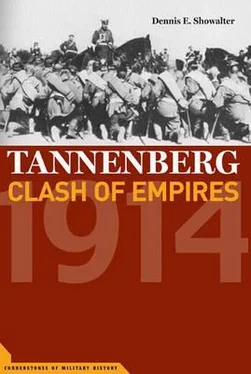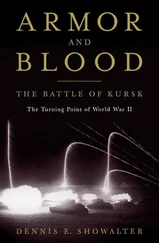68Leichardt to Carlowitz, July 3, 1914, in ibid., I, Nr. 15.
69“Die Wachsende Macht Russland,” PAAA, Deutschland 121/31, Geheim 2.1 am indebted to Ivo Lambi for sharing his detailed notes on this document.
70Entry of July 7, 1914 in Riezler, Tagebücher. The damage done by the Riezler diaries to the more extreme assertions of German responsibility for the war’s outbreak is best attested to by the recent attempts to deny their authenticity. The most extreme of these is Bernd F. Schulte, Die Verfälschung der Riezler Tagebücher (Frankfurt, 1985). Their failure is documented in Agnes A. Blänsdorf, “Der Weg der Riezler-Tagebücher. Zur Kontroverse über die Echtheit der Tagebücher Kurt Riezlers,” Geschichte in Wissenschaft und Unterricht XXXV (1984), 651–684.
71Entries of July 20 and 23, 1914, in Riezler, Tagebücher, 186 ff: and Bethman’s conversations of Feb. 9 and July 30, 1915, with journalist Theodor Wolff in Theodor Wolff: Tagebücher 1914–1919, ed. B. Sösemann, 2 vols. (Boppard, 1984), I, 156–157, 265 ff. Cf. D. W. Sweet, “The Baltic in British Diplomacy before the First World War,” Historical Journal XIII (1970), 451–490; Manfred Rauh, “Die britisch-russische Marinekonvention von 1914 und der Ausbruch des Ersten Weltkrieges, MGM, XLI (1987), 37–62.
72Sazonov to Beneckendorff, June 28, 1914, Int. Bez. I, 5, Nr. 164; entry of July 23, 1914, in Riezler, Tagebücher, 190.
73Lichnowsky’s January, 1915 memorandum and Eulenberg’s 1919 correspondence with Professor Kurt Breysig are reprinted in 1914: Delusion or Design? ed. with intro. by John Röhl (New York, 1973).
74Goschen to Grey, July 29, 1914, BD XI, Nr. 293. Cf. Volker Ullrich, “Das deutsche Kalkül in der Julikrise 1914 und die Frage der Englischen Neutralität,” Geschichte in Wissenschaft und Unterricht XXXIV (1983), 73–97.
75Waldersee to Jagow, July 8, 1914, DD I, Nr. 74.
76Ulrich Trumpener, “War Premeditated? German Intelligence Operations in July 1914,” Central European History IX (1976), 58–85, based heavily on Fritz Gempp, “Geheimer Nachrichtendienst und Spionageabwehr des Heeres,” National Archives T-77, Rolls 1,438–1,440, 1,422, 1,507–1,509, accurately stresses the lack of urgency in the German military response. Cf. particularly Gempp, “Nachrichtendienst” II, 1, 2 ff. For the French-Russian radio link see Luntinen, French Information on Russian War Plans, 167 ff.
77Sazonov’s comments on Austria’s behavior are in Szapary to Berchtold, July 24, 1914, Oe-U VIII, Nr. 10616; and in the Russian foreign ministry’s memorandum of July 18, 1914 in Int. Bez. I, 4, Nr. 272. The most detailed secondary reconstruction in a Western language of Sazonov’s decision to order partial mobilization remains Luigi Albertini, The Origins of the War of 1914, 3 Vols., tr. and ed. I. M. Massey (London, 1952–57), II, 528 ff. Cf. Serge Doborolski, Die Mobilmachung der russischen Armee 1914 (Berlin, 1922), for the specifically military aspects.
78L. C. F. Turner, “The Russian Mobilization in 1914,” Journal of Contemporary History I (1968), 65–88, is significantly modified by Lieven, Russia and the Origins of the First World War, 148 ff.
79Cf. Paléologue’s dispatch of July 26, 1914, in DDF, 3rd Series, XI, Nr. 80; Messimy’s statement in Raymond Recouly, Les Heures Tragiques d’avant-guerre (Paris, 1922), pp. 61 ff.; Joffre’s account in his Memories, 2 vols., tr. T. B. Mott (London, 1932), I, 117–118; and Krumeich, Armaments and Politics, 215 ff.
80Gempp, “Nachrichtendienst” II, 1, 18 ff., 70 ff.
81Moltke to Bethmann, July 29, 1914, DD II, Nr. 349.
82Gempp, “Nachrichtendienst” II, 1, 31–32. The report is in DD II, Nr. 372.
83Bethmann to Wilhelm, July 26, PAAA, Preussen, la/23. Egmont Zechlin, “Bethmann-Hollweg, Kriegsrisiko und SPD/1914,” in Krieg und Kriegsrisiko, 64–93, stresses the importance in Bethmann’s mind of maximizing domestic support by waiting as long as possible to order mobilization.
84Sazonov’s itinerary and behavior are reconstructed primarily from the “daily report” of the Russian foreign ministry for July 29, 1914, in Int. Bez. I, 5, Nr. 224; and Pourtalés’s dispatches of 4:30 and 9:30 a.m. and 1:01 p.m. July 30, to Jagow in DD II, Nrs. 401, 412, and 421. Albertini, Origins II, 563–564, analyzes the discrepancies between the two accounts. I have followed the Russian version in placing Sazonov’s final proposal during the night, rather than on the morning of the 30th, as described by Pourtalés.
85Buchanan to Grey, July 30, BD XI, Nr. 302. Sazonov had used the same comparison to Pourtalés the previous day. DD II, Nr. 412.
86Cf. the daily report of July 30, 1914, in Int. Bez. I, 5, Nr. 284; and Sazonov’s own memoir, Fateful Years, 1909–1916 (London, 1928), 201 ff.
87Stephen Kern, The Culture of Time and Space, 1880–1918 (Cambridge, Mass., 1983), 259 ff.
88Entry of July 25, 1914, in Wolff, Tagebücher I, 63 ff; entry of Aug. 15, 1914, in Riezler, Tagebücher, 194.
89Bethmann to Tschirsky, 3:00 a.m., 9:00 p.m., July 30, 1914, DD II, Nrs. 396, 441.
90Berchtold to Szapary, July 30, 1914; Berchtold to Szogyeni, July 31, 1914, in Oe-U VIII, Nrs. 11092, 11155.
91Albertini, Origins III, 24 ff., remains the best analysis of the still-controversial issue of exactly when the German leaders first learned of Russia’s mobilization.
92First Lieutenant Hermann Hoth, who was to become one of the Wehrmacht’s most distinguished panzer commanders, was the duty officer in Berlin that morning. His account is in Gempp, “Nachrichtendienst” III, 2, 34 ff. For the phone call to XX Corps see F. von Notz, General von Scholtz: Ein deutsches Soldatenleben in Grosser Zeit (Berlin, 1937), 37.
93Nicolai observed that the advantages of Jewish agents were their “unscrupulous greed, slyness, and persistence.” Disadvantages were insolence, cowardice, vengefulness, and excessive imagination. He graciously commented, however, that the better elements among Russia’s oppressed Jews repaid decent treatment with gratitude and loyalty. Gempp, “Nachrichtendienst,” I, 149.
94Gert Buchheit, Der deutsche Geheimdienst (Munich, 1966), 22.
95Bethmann to Pourtalès, 3:30 p.m., July 31, 1914, DD III, Nr. 490.
1For military life in Germany’s eastern provinces, regimental histories are a mine of direct and indirect information. I found particularly useful Erich Balla’s history of the 1st Jäger, Im Yorkschen Geist: Der Deutsche Frontsoldat und seine Seele (Berlin, 1926), 1 ff.; Kurt Hennig, Das Infanterie-Regiment (8.Ostpreussisches) Nr. 45 (Oldenburg, Berlin, 1928), 15 ff.; Alfred Dieterich, Geschichte des Grenadierregiments König Friedrich der Grosse (3.Ostpreussischen) Nr. 4 (Berlin, 1928), 590 ff. (hereafter cited as 4 .Grenadiere); and Konrad Marschall, “Die 5.Grenadiere in Danzig,” Zeitschrift für Heeresführung und Truppenkunde XXXII (1968), 64–75. Economic conditions are best summarized in Frank B. Tipton, Jr., Regional Variations in the Economic Development of Germany during the Nineteenth Century (Middletown, Conn., 1976), 112 ff.; and Heinz Rogmann, Die Bevölkerungsen-twicktung im preussischen Osten in den letzten hundert Jahren (Berlin, 1937).
2Geoff Eley, “German Politics and Polish Nationality: The Dialectic of Nation-Forming in the East of Prussia,” East European Quarterly XVIII (1984), 335–364, is at once an excellent analysis of the question and a perceptive survey of the relevant literature. Eric A. Johnson, “The Roots of Crime in Imperial Germany,” Central European History XV (1982), 351–376, presents the relationship between ethnic makeup and criminal activity in the Kreise mentioned. For the emergence of ethnic politics in the east see Stanley Suval, Electoral Politics in Wilhelmine Germany (Chapel Hill, N.C., 1985), 180 ff.
Читать дальше












